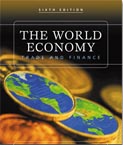G20 gets to work on broad blueprint for economic reform
 Washington - The major players on the world economic stage were united like they had never been before on the need for joint action to prevent future crises, as the Group of 20 (G20) gathered at the White House for an urgently convened summit aimed at staving off the global financial crisis.
Washington - The major players on the world economic stage were united like they had never been before on the need for joint action to prevent future crises, as the Group of 20 (G20) gathered at the White House for an urgently convened summit aimed at staving off the global financial crisis.
But as they sat down to dinner Friday night with their host, outgoing US President George W Bush, there was no overriding consensus among the 20 developed and emerging economies on the degree to which the recent wild swings of the financial markets could be tamed, participants at the dinner said.
The dinner was the scene of a discussion that went on longer than planned. The emerging economies, such as Brazil and Mexico, were especially concerned about world economic development, participants said. Other leaders focussed on the current financial crisis itself with its falling stock prices and ossifying credit markets, they said.
The differing focuses were unlikely to be strongly evident when the summit comes to an end Saturday, because the meeting is meant to establish a broad understanding on the cornerstones of a new world financial architecture.
A draft of the summit's closing declaration indicated the G20 would agree to close gaps in the regulation of world financial markets in the wake of a financial crisis that is threatening to plunge the global economy into recession.
The G20 nations - which include the Group of Eight industrialized nations and some of the largest emerging economies, including China, India, Brazil and South Africa - would aim to ensure "all financial markets, financial products and market participants" are subject to regulation or supervision, the draft declaration said.
Such a move was likely to involve a crackdown on hedge funds, tax havens and other financial instruments that have emerged in recent years as part of the fast-paced globalization of world financial markets.
The agreement would put pressure on states to bring their own regulatory systems in line with international standards, but there is no language in the document about sanctioning countries that fail to comply.
Bush, who leaves office in January, reminded the G20 as he greeted them at the working dinner that "the stakes are high."
"We are determined to fix the problems that led to the turmoil and return the global economy to long-term prosperity," he said.
British Prime Minister Gordon Brown, who decried regulation as chancellor of the exchequer, quickly became a leader in the pro-reform camp while Nicolas Sarkozy, the French president and current EU president, upped his usual frenetic energy in demanding to make the summit "a new Bretton Woods," the US meeting in 1944 that shaped the post-World War II monetary system.
German Chancellor Angela Merkel kept out of the spotlight, in contrast to the leading role she took in the fight against climate change, as she and her foreign minister, Frank-Walter Steinmeier, cultivate Germany's image as a respected international broker.
After Merkel spent days telephoning world leaders ahead of the summit, members of the German delegation to the G20 summit said they believed the meeting would set at least one train on a track going in the right direction.
The G20 plans to meet again in 100 days after the summit to evaluate its progress, but if it truly plans to design a new world financial architecture, its work could go on for several years.
And whether its locomotive would ultimately get to its intended destination would depend on such issues as what controls are put on ratings agencies as well as tax havens, such as the Cayman Islands and Lichtenstein. (dpa)